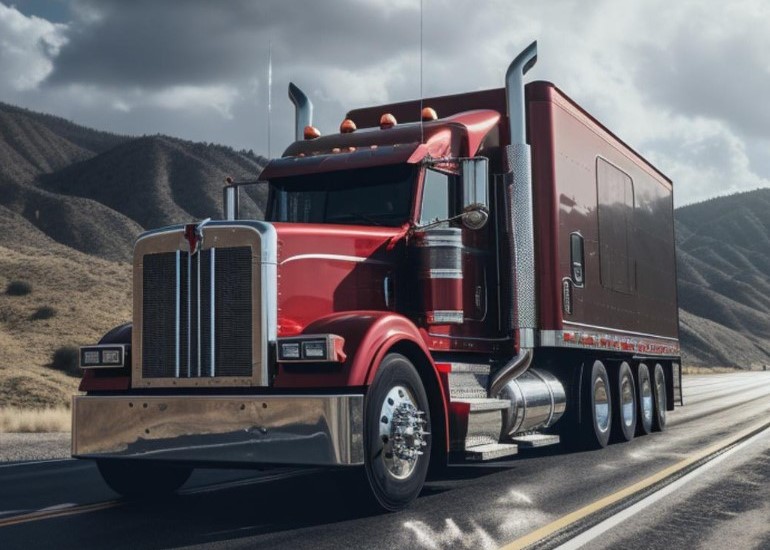Online CDL Permit Practice Tests
state Virginia
Ace Your Virginia CDL Exam: Free Practice Tests
Don't waste your time - start practicing with free online tests today
Our free online CDL practice tests cover all the essential topics, including General Knowledge, Air Brakes, and Combination Vehicles. Practice at your own pace, anytime, anywhere, to build your confidence and ensure you’re fully prepared for your CDL exam.
General Knowledge Test
Air Brakes
Test
Combination Vehicle Test
Step-by-Step Guide to Getting a CDL in Virginia
Step 1: Determine Your CDL Class and Endorsements
Before applying for a Commercial Driver’s License (CDL) in Virginia, it’s essential to identify the appropriate CDL class and any necessary endorsements based on the type of vehicle you plan to operate and the nature of the cargo or passengers you intend to transport.
CDL Classifications in Virginia
Virginia classifies commercial motor vehicles (CMVs) into three primary categories:
Class A: Any combination of vehicles with a Gross Combination Weight Rating (GCWR) of 26,001 pounds or more, provided the vehicle(s) being towed have a Gross Vehicle Weight Rating (GVWR) exceeding 10,000 pounds. Examples include tractor-trailers and truck and trailer combinations. Holding a Class A license, with the appropriate endorsements, allows operation of vehicles in Classes B and C.
Class B: Any single vehicle with a GVWR of 26,001 pounds or more, or any such vehicle towing another vehicle with a GVWR of 10,000 pounds or less. This category encompasses straight trucks, large buses, and segmented buses. With the proper endorsements, a Class B license holder may also operate Class C vehicles.
Class C: Any vehicle not meeting the criteria for Class A or B that is designed to transport 16 or more passengers, including the driver, or is used to transport hazardous materials requiring placarding.
CDL Endorsements
Depending on the specific vehicle operations, additional endorsements may be required:
H (Hazardous Materials): Permits the operation of vehicles transporting hazardous materials. Obtaining this endorsement requires passing the hazardous materials knowledge exam and undergoing a background check.
N (Tank Vehicle): Authorizes the operation of vehicles designed to transport liquids or gases in bulk containers.
P (Passenger): Allows operation of vehicles designed to carry 16 or more passengers, including the driver.
S (School Bus): Required for operating school buses.
T (Double/Triple Trailers): Permits the operation of vehicles towing double or triple trailers.
X: A combination endorsement that allows operation of tank vehicles transporting hazardous materials.
Each endorsement necessitates passing additional knowledge tests and, in certain cases, skills tests. For instance, obtaining a hazardous materials endorsement involves a background check conducted by the Transportation Security Administration (TSA).
By accurately determining the appropriate CDL class and necessary endorsements, you ensure compliance with Virginia’s regulations and are better prepared to operate commercial vehicles safely and legally.
Step 2: Obtain a Commercial Learner's Permit (CLP):
To obtain a Commercial Learner’s Permit (CLP) in Virginia, follow these steps:
1. Verify Eligibility
Age Requirements: You must be at least 18 years old to apply for a CLP. However, to operate a commercial motor vehicle interstate or to transport hazardous materials, you must be at least 21 years old.
Valid Driver’s License: Possess a valid Virginia Class D (non-commercial) driver’s license.
2. Study for the Knowledge Tests
CDL Manual: Review the Virginia Commercial Driver’s Manual to prepare for the required knowledge tests pertinent to the class of CDL and any endorsements you seek.
3. Obtain a Medical Examiner’s Certificate
Medical Examination: Undergo a physical examination by a certified medical examiner to ensure you meet the physical qualifications for commercial driving. Upon passing, you’ll receive a Medical Examiner’s Certificate, which is required for the CLP application.
4. Complete the Application
Form Submission: Fill out the Commercial Driver’s License Application (Form DL 2P), available on the Virginia Department of Motor Vehicles (DMV) website.
5. Gather Required Documents
Proof of Identity and Residency: Provide documents verifying your identity, Virginia residency, and Social Security number.
Medical Certification: Submit your valid Medical Examiner’s Certificate.
6. Pass the Knowledge Tests
Testing: Take and pass the general knowledge test and any additional tests required for specific endorsements or vehicle classes. These tests assess your understanding of commercial vehicle operation and safety.
7. Pay Applicable Fees
Fee Structure: Pay the required fees associated with the CLP application and knowledge tests. Fee amounts can be obtained from the Virginia DMV.
8. Obtain the CLP
Permit Issuance: Upon meeting all requirements and passing the necessary tests, the Virginia DMV will issue your Commercial Learner’s Permit. The CLP is valid for 180 days and can be renewed once without retesting.
By diligently following these steps and ensuring all requirements are met, you will be well-prepared to advance toward obtaining your full Commercial Driver’s License in Virginia.
Step 3: Complete Entry-Level Driver Training (ELDT):
To progress toward obtaining a Commercial Driver’s License (CDL) in Virginia, completing the federally mandated Entry-Level Driver Training (ELDT) is essential.
Understanding ELDT Requirements
As of February 7, 2022, the Federal Motor Carrier Safety Administration (FMCSA) requires individuals to complete ELDT before:
Obtaining a Class A or Class B CDL for the first time.
Upgrading an existing Class C license to a Class A or B CDL, or upgrading from a Class B to a Class A CDL.
Acquiring endorsements for hazardous materials (H), passenger (P), or school bus (S) operations for the first time.
This training must be completed prior to taking the CDL skills or knowledge tests.
Components of ELDT
The ELDT program comprises both theory (knowledge) and behind-the-wheel (BTW) instruction:
Theory Instruction: Covers essential topics such as basic operation, safe operating procedures, advanced operating procedures, vehicle systems and reporting malfunctions, and non-driving activities.
Behind-the-Wheel Training: Provides hands-on driving experience under the supervision of a qualified instructor, focusing on basic vehicle control skills and maneuvers both on a range and public roads.
Trainees must demonstrate proficiency in both areas to successfully complete the program.
Selecting an Approved Training Provider
Training must be obtained from a provider listed on the FMCSA’s Training Provider Registry (TPR). This registry includes various entities such as training schools, educational institutions, and motor carriers that meet federal standards. In Virginia, training providers must be licensed as Class A driver training schools, certified third-party testers, or Virginia governmental entities.
State-Specific Considerations in Virginia
Virginia law requires applicants taking training from a licensed driver training school that also provides CDL skills examinations to complete both the theory and behind-the-wheel portions of training with that school.
By completing the ELDT with an approved provider and adhering to both federal and Virginia state regulations, you will be well-prepared to proceed with the CDL skills or knowledge tests, bringing you closer to achieving your commercial driving objectives.
Step 4: Practice with Your CLP:
After obtaining your Commercial Learner’s Permit (CLP) in Virginia, it’s essential to engage in supervised driving practice to prepare for the Commercial Driver’s License (CDL) skills test.
Supervised Driving Requirements
Accompanied Driving: While holding a CLP, you are permitted to operate a commercial motor vehicle (CMV) only when accompanied by a person licensed to drive the same type of vehicle. The licensed individual must be physically present in the front seat with you during operation.
Practice Duration
Holding Period: Virginia mandates that you hold the CLP for a minimum of 14 days before taking the CDL skills test. This period allows you to gain the necessary driving experience under supervision.
Practice Areas
Pre-Trip Inspection: Familiarize yourself with conducting thorough pre-trip inspections to ensure the vehicle’s safety and compliance with regulations.
Basic Vehicle Control: Practice fundamental vehicle control skills, including backing, parking, and maneuvering in confined spaces.
On-Road Driving: Gain experience driving in various traffic conditions, adhering to traffic laws, and demonstrating defensive driving techniques.
Additional Considerations
Vehicle Type: Ensure that your practice sessions are conducted in the type of vehicle you intend to operate, as the CDL skills test must be taken in a representative vehicle.
Compliance: Adhere strictly to all traffic laws and regulations during practice sessions to build safe driving habits and avoid any infractions that could delay your CDL acquisition.
By dedicating time to supervised practice and focusing on these key areas, you will enhance your readiness for the CDL skills test and your future responsibilities as a commercial driver.
Step 5: Schedule and Pass the CDL Skills Test:
After obtaining your Commercial Learner’s Permit (CLP) and completing the necessary Entry-Level Driver Training (ELDT), the next step toward securing your Commercial Driver’s License (CDL) in Virginia is to schedule and pass the CDL skills test.
Scheduling the CDL Skills Test
Appointment Requirement: CDL skills tests in Virginia are conducted by appointment only. To schedule your test, contact the CDL testing location nearest to you. A list of testing locations, along with their contact information, is available on the Virginia Department of Motor Vehicles (DMV) website.
Scheduling Process: Reach out to your chosen testing site to arrange an appointment. It’s advisable to schedule well in advance, as slots may fill up quickly.
Preparing for the Test
Vehicle Requirements: You are responsible for providing a commercial vehicle representative of the class and type for which you are seeking licensure. The vehicle must have a valid safety inspection sticker, license plates, registration card, and be in safe working condition with functional brakes, safety belts, horn, lights, turn signals, mirrors, and speedometer.
Documentation: On the day of the test, bring the following:
Your valid Virginia driver’s license.
Your CLP, held for at least 14 days.
Proof of completion of ELDT, if applicable.
Medical Examiner’s Certificate.
Proof of vehicle registration and insurance.
Test Components
The CDL skills test comprises three segments:
Pre-Trip Vehicle Inspection: Demonstrate your ability to assess the safety and readiness of the vehicle.
Basic Vehicle Control: Show proficiency in controlling the vehicle, including maneuvers such as backing, parking, and navigating through tight spaces.
On-Road Driving: Exhibit safe driving practices in various traffic situations, adhering to traffic laws and demonstrating defensive driving techniques.
Important Considerations
Missed Appointments: If you miss your scheduled skills test appointment without notifying the examiner in advance, you will be charged a $50 fee. This fee must be paid within 31 days to avoid additional penalties.
Three-Time Failure Policy: If you fail the skills test three times, you are required to complete the in-vehicle portion of a Virginia-approved Driver Training School program for commercial motor vehicles before retaking the test.
By thoroughly preparing and understanding the testing process, you enhance your chances of successfully obtaining your Commercial Driver’s License in Virginia.
Step 6: Obtain Your CDL:
After successfully passing the Commercial Driver’s License (CDL) skills test in Virginia, follow these steps to obtain your CDL:
1. Complete the Application Process
Form Submission: Submit a completed Commercial Driver’s License Application to the Virginia Department of Motor Vehicles (DMV).
Documentation: Provide all necessary documents, including:
Proof of identity and legal presence.
Social Security Number verification.
Two proofs of Virginia residency.
Current driver’s license.
Medical Examiner’s Certificate.
2. Pay Applicable Fees
License Fees: Pay the required fees associated with the issuance of your CDL. A standard CDL with no endorsements costs $64 and is valid for 8 years. Endorsements cost an additional $1 per year.
3. License Issuance
Receiving Your CDL: Upon completion of the application process and payment of fees, the Virginia DMV will mail your CDL to your address on record. Ensure your address is current to avoid delivery issues.
By diligently completing these steps and ensuring all requirements are met, you will successfully obtain your Commercial Driver’s License in Virginia, enabling you to pursue opportunities in commercial driving.
Additional Considerations:
When pursuing a Commercial Driver’s License (CDL) in Virginia, it’s important to consider several additional factors to ensure compliance with state regulations and to facilitate a smooth application process.
Identification and Residency Requirements
Applicants must provide specific documentation to verify identity and residency:
Proof of Identity and Legal Presence: Documents such as a valid U.S. passport or birth certificate are required.
Social Security Number Verification: Present your Social Security card or a document displaying your full Social Security Number.
Virginia Residency: Provide two proofs of Virginia residency, such as utility bills or lease agreements.
These requirements apply to both new applicants and those renewing or replacing a CDL.
Medical Certification
All CDL applicants must meet medical certification standards:
Self-Certification Categories: Applicants must certify the type of commercial driving they intend to perform, choosing from categories such as non-excepted interstate or intrastate.
Medical Examiner’s Certificate: Those certifying under non-excepted categories must provide a valid Medical Examiner’s Certificate from a certified medical examiner listed on the National Registry.
Failure to meet these medical certification requirements can result in application denial.
Age Restrictions
Age limits are enforced for CDL applicants:
Intrastate CDL: Applicants must be at least 18 years old to operate commercial vehicles within Virginia.
Interstate CDL: To drive commercial vehicles across state lines, transport hazardous materials, or engage in interstate freight transport within Virginia, applicants must be at least 21 years old.
Those under 21 will receive a CDL with a “K” restriction, indicating validity only within Virginia.
CDL Classifications, Endorsements, and Restrictions
Understanding the specific classifications, endorsements, and restrictions is crucial:
Classifications: CDLs are categorized into Class A, B, and C, depending on the type and weight of the vehicle operated.
Endorsements: Additional qualifications, such as hazardous materials (H), passenger (P), or school bus (S) endorsements, may be required based on the vehicle type and cargo.
Restrictions: Certain limitations may be applied to your CDL, such as the “K” restriction for intrastate operation or the “E” restriction indicating no manual transmission operation.
Disqualifications and Serious Violations
CDL holders must adhere to high standards of conduct:
Major Offenses: Convictions such as driving under the influence, refusal to submit to a blood alcohol test, or using a commercial vehicle to commit a felony can result in disqualification periods ranging from one year to a lifetime ban.
Serious Violations: Offenses including excessive speeding (15 mph or more over the limit), reckless driving, improper lane changes, or following too closely can lead to disqualification, especially if multiple violations occur within a three-year period.
Testing and Training Requirements
Applicants should be aware of testing protocols:
Knowledge Exams: Applicants may take the CDL knowledge exams only once per business day. Passed knowledge test results are valid for one year.
Three-Time Failure Policy: Failing the same knowledge exam three times necessitates completion of the knowledge component of driver instruction at a DMV-approved driver training school before retesting.
By thoroughly understanding and complying with these additional considerations, you can navigate the CDL application process in Virginia more effectively and maintain the privileges associated with holding a commercial driver’s license.
Frequently asked questions
What are the age requirements for obtaining a CDL in Virginia?
You must be at least 18 years old to apply for a CDL for intrastate driving within Virginia. If you plan to drive across state lines, transport hazardous materials, or engage in interstate commerce, you must be at least 21 years old.
What documents are required to apply for a CDL in Virginia?
You must provide one proof of identity, one proof of legal presence, one proof of your Social Security number, and two proofs of Virginia residency. Additional documentation may be needed if your name has changed or if you're transferring an out-of-state license.
How do I obtain a Commercial Learner’s Permit (CLP)?
To obtain a CLP, you must pass the general knowledge test and any required endorsement exams, complete a medical examination, provide the required documents, and pay the applicable fees. You must also already hold a valid Virginia driver’s license.
How long must I hold a CLP before taking the CDL skills test?
You must hold your CLP for at least 14 days before you are eligible to take the CDL skills test. This waiting period allows for supervised practice driving.
Is Entry-Level Driver Training (ELDT) required in Virginia?
Yes. As of February 7, 2022, ELDT is required for first-time Class A or B CDL applicants, those upgrading a license, or those seeking hazardous materials, passenger, or school bus endorsements. Training must be completed with a provider listed on the FMCSA Training Provider Registry.
What does the CDL skills test include?
The CDL skills test consists of a pre-trip vehicle inspection, basic vehicle control exercises, and an on-road driving test. All three components must be passed to qualify for a CDL.
Where can I take the CDL skills test in Virginia?
Skills tests are administered by appointment at designated CDL test sites across the state. You must provide a representative vehicle for the class of CDL you are testing for and bring all required documentation to your appointment.
What happens if I fail the CDL skills test?
If you fail the CDL skills test three times, you must complete the in-vehicle portion of a driver training program approved by the Virginia DMV before attempting the test again.
How do I renew my CDL in Virginia?
You can renew your CDL online, by mail, or in person at a DMV customer service center. You must pass a vision screening, and if required, submit updated medical certification. CDL renewals are typically valid for eight years.



